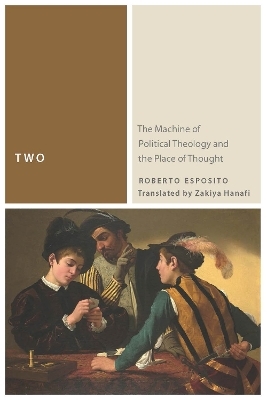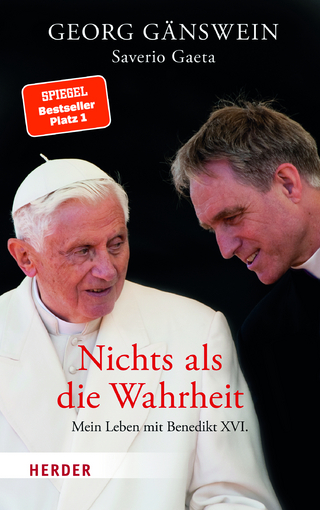
Two
The Machine of Political Theology and the Place of Thought
Seiten
2015
Fordham University Press (Verlag)
978-0-8232-6762-0 (ISBN)
Fordham University Press (Verlag)
978-0-8232-6762-0 (ISBN)
This book describes the historical underpinnings of political theology that continue to exert their influence. The confluence of Roman and Christian notions on the person fuels an exclusionary mechanism that unites by dividing people. Restoring thought to an impersonal place of universal access can help to end this oppressive conceptual regime.
The debate on “political theology” that ran throughout the twentieth century has reached its end, but the ultimate meaning of the notion continues to evade us. Despite all the attempts to resolve the issue, we still speak its language—we remain in its horizon.
The reason for this, says Roberto Esposito, lies in the fact that political theology is neither a concept nor an event; rather, it is the pivot around which the machine of Western civilization has revolved for more than 2,000 years. At its heart stands the juncture between universalism and exclusion, unity and separation: the tendency of the Two to make itself into One by subordinating one part to the domination of the other. All the philosophical and political categories that we use, starting with the Roman and Christian notion of “the person,” continue to reproduce this exclusionary dispositif.
To take our departure from political theology, then—the task of contemporary philosophy—we must radically revise our conceptual lexicon. Only when thought has been returned to its rightful “place”—connected to the human species as a whole rather than to individuals—will we be able to escape from the machine that has
imprisoned our lives for far too long.
The debate on “political theology” that ran throughout the twentieth century has reached its end, but the ultimate meaning of the notion continues to evade us. Despite all the attempts to resolve the issue, we still speak its language—we remain in its horizon.
The reason for this, says Roberto Esposito, lies in the fact that political theology is neither a concept nor an event; rather, it is the pivot around which the machine of Western civilization has revolved for more than 2,000 years. At its heart stands the juncture between universalism and exclusion, unity and separation: the tendency of the Two to make itself into One by subordinating one part to the domination of the other. All the philosophical and political categories that we use, starting with the Roman and Christian notion of “the person,” continue to reproduce this exclusionary dispositif.
To take our departure from political theology, then—the task of contemporary philosophy—we must radically revise our conceptual lexicon. Only when thought has been returned to its rightful “place”—connected to the human species as a whole rather than to individuals—will we be able to escape from the machine that has
imprisoned our lives for far too long.
Roberto Esposito is Professor of Theoretical Philosophy at the Scuola Normale Superiore of Pisa. His many books in English include Bios: Biopolitics and Philosophy and Two: The Machine of Political Theology and the Place of Thought (Fordham).
Introduction Passage: Gestell 1. Machination Passage: Katechon 2. The dispositif of the person Passage: Nexum (economic theology I) 3. The Place of Thought Passage: Sovereign debt (economic theology II) Index
| Erscheint lt. Verlag | 1.9.2015 |
|---|---|
| Reihe/Serie | Commonalities |
| Übersetzer | Zakiya Hanafi |
| Verlagsort | New York |
| Sprache | englisch |
| Maße | 152 x 229 mm |
| Themenwelt | Geisteswissenschaften ► Geschichte |
| Geisteswissenschaften ► Philosophie ► Geschichte der Philosophie | |
| Geisteswissenschaften ► Philosophie ► Philosophie der Neuzeit | |
| Religion / Theologie ► Christentum ► Kirchengeschichte | |
| Geisteswissenschaften ► Sprach- / Literaturwissenschaft ► Anglistik / Amerikanistik | |
| Geisteswissenschaften ► Sprach- / Literaturwissenschaft ► Literaturwissenschaft | |
| Recht / Steuern ► EU / Internationales Recht | |
| Recht / Steuern ► Rechtsgeschichte | |
| Sozialwissenschaften ► Politik / Verwaltung ► Politische Theorie | |
| ISBN-10 | 0-8232-6762-8 / 0823267628 |
| ISBN-13 | 978-0-8232-6762-0 / 9780823267620 |
| Zustand | Neuware |
| Haben Sie eine Frage zum Produkt? |
Mehr entdecken
aus dem Bereich
aus dem Bereich
von Athanasius bis Gregor dem Großen
Buch | Softcover (2024)
C.H.Beck (Verlag)
12,00 €
eine Geschichte der christlichen Kunst
Buch | Hardcover (2024)
C.H.Beck (Verlag)
32,00 €


